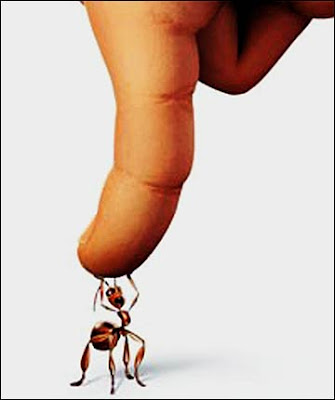
We all remember being in junior high and kids tormenting us on the way we dressed or the zits that surfaced on our face. Well, nothing's changed since then. If anything, things have gotten worse. At some point, your kids will be singled out and made fun of. And it will hurt. So, as a parent, there are a few things you can do.
First, share with your children that getting teased is a normal part of growing up and that you went through it and survived. Then, tell them that the person giving them grief is probably insecure and only thrives on putting others down. Finally, and most importantly, make sure you reinforce over and over to your child how much you love them, and reiterate all the positive things about them. Tomorrow, we'll talk specifically about how your child should respond to a bully, but in the mean time here's a bit more helpful information for you about how to help your children deal with bullying:
Bullying behavior may seem rather insignificant compared to kids bringing guns to school and getting involved with drugs. Bullying is often dismissed as part of growing up. But it's actually an early form of aggressive, violent behavior. Statistics show that one in four children who bully will have a criminal record before the age of 30.
Bullies often cause serious problems that schools, families, and neighbors ignore. Teasing at bus stops, taking another child's lunch money insults and threats, kicking or shoving -- it's all fair game to a bully Fears and anxieties about bullies can cause some children to avoid school, carry a weapon for protection, or even commit more violent activity
A Word About the Victim
Although anyone can be the target of bullying behavior, the victim is often singled out because of his or her psychological traits more than his or her physical traits. A typical victim is likely to be shy, sensitive, and perhaps anxious or insecure. Some children are picked on for physical reasons such as being overweight or physically small, having a disability, or belonging to a different race or religious faith.
A Word About the Bully
Some bullies are outgoing, aggressive, active, and expressive. They get their way by brute force or openly harassing someone. This type of bully rejects rules and regulations and needs to rebel to achieve a feeling of superiority and security. Other bullies are more reserved and manipulative and may not want to be recognized as harassers or tormentors. They try to control by smooth-talking, saying the "right" thing at the "right" time, and lying. This type of bully gets his or her power discreetly through cunning, manipulation, and deception.
As different as these two types may seem, all bullies have some characteristics in common. They:
•are concerned with their own pleasure
•want power over others
•are willing to use and abuse other people to get what they want
•feel pain inside, perhaps because of their own shortcomings
•find it difficult to see things from someone else's perspective
What You Can Do
•Listen to children. Encourage children to talk about school, social events, other kids in class, the walk or ride to and from school so you can identify any problems they may be having.
•Take children's complaints of bullying seriously. Probing a seemingly minor complaint may uncover more severe grievances. Children are often afraid or ashamed to tell anyone that they have been bullied, so listen to their complaints.
•Watch for symptoms that children may be bullying victims, such as withdrawal, a drop in grades, torn clothes, or needing extra money or supplies.
•Tell the school or organization immediately if you think that your children are being bullied. Alerted caregivers can carefully monitor your children's actions and take steps to ensure your children's safety.
•Work with other parents to ensure that the children in your neighborhood are supervised closely on their way to and from school.
•Don't bully your children yourself, physically or verbally. Use nonphysical, consistently enforced discipline measures as opposed to ridiculing, yelling at, or ignoring your children when they misbehave.
•Help children learn the social skills they need to make friends. A confident, resourceful child who has friends is less likely to be bullied or to bully others.
•Praise children's kindness toward others. Let children know that kindness is valued.
•Teach children ways to resolve arguments without violent words or actions. Teach children self-protection skills -- how to walk confidently, stay alert to what's going on around them, and to stand up for themselves verbally.
•Provide opportunities for children to talk about bullying, perhaps when watching TV together, reading aloud, playing a game, or going to the park or a movie.
•Recognize that bullies may be acting out feelings of insecurity, anger, or loneliness. If your child is a bully, help get to the root of the problem. Seek out specific strategies you can use at home from a teacher, school counselor, or child psychologist.

.JPG)
.JPG)

.JPG)
.JPG)
.JPG)































